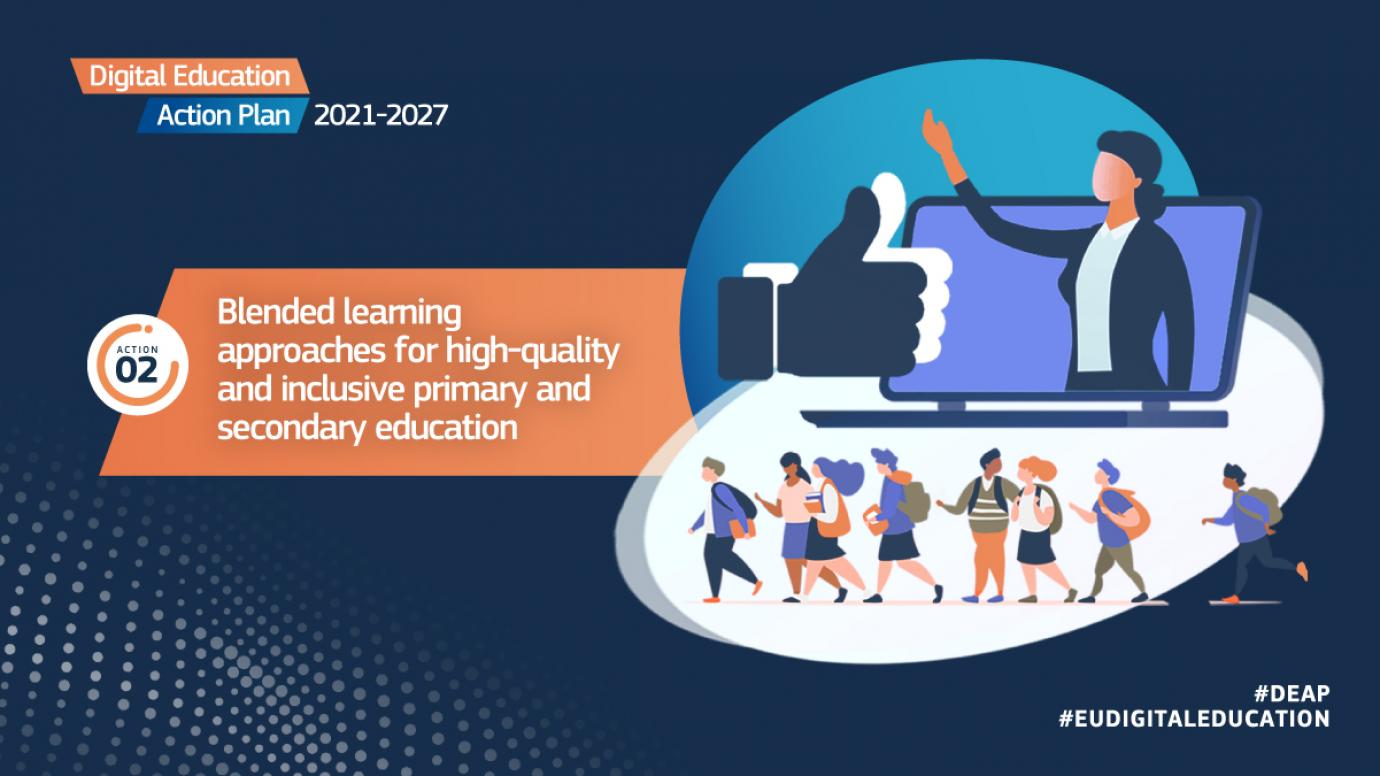Council Recommendation on blended learning approaches for high-quality and inclusive primary and secondary education
The COVID-19 pandemic has led to the sudden and large-scale use of digital learning practices. The range of solutions put in place to ensure the continuity of education and training were wide and included both low and high-tech practices.
Higher levels of digital capacity and experience with alternative and flexible forms of learning have led to faster and more effective responses to the pandemic.
Evidence highlights differences in the effectiveness of responses between education and training levels and sectors. In most cases, higher education institutions continued their lessons virtually, while many schools at both primary and secondary level lacked expertise and struggled to offer distance and online learning opportunities to all their students.
Objectives
Drawing on the lessons learned from the COVID-19 pandemic, the Council Recommendation on blended learning develops a shared understanding at the European Union (EU) level to blended learning. ‘Blended learning' is the term used in formal education and training to describe when a school, educator or student takes more than one approach to the learning process.
It may combine learning at school and in other environments, such as companies, training centres, distance learning, outdoors, at cultural sites, as well as using different (non-)digital learning tools.
The purpose of the Council Recommendation is to support EU Member States to address the consequences of the pandemic on learners, teachers, trainers and schools in the short term.
It also outlines a way forward for developing long-term effective, inclusive and engaging approaches to blended learning in primary and secondary education. This will help adapting school education systems to be more flexible and inclusive of a broad range of pedagogical methods, technological tools, learner needs and changing circumstances.
Key activities
- support mutual learning and exchanges among Member States
- develop resources, including guidance material, such as a handbook and a framework for blended learning
- support professional development opportunities, including online courses, and the SELFIE tool for teachers
Timing
- 5 August 2021 - Commission proposal of the Council Recommendation
- 29 November 2021 - Council adoption of the Council Recommendation
Get in touch
If you are interested in knowing more about this action, you can get in touch with us by email at EAC-UNITE-B2@ec.europa.eu.
Follow EUDigitalEducation on Twitter for the latest news and developments on this action and the whole Digital Education Action Plan.



